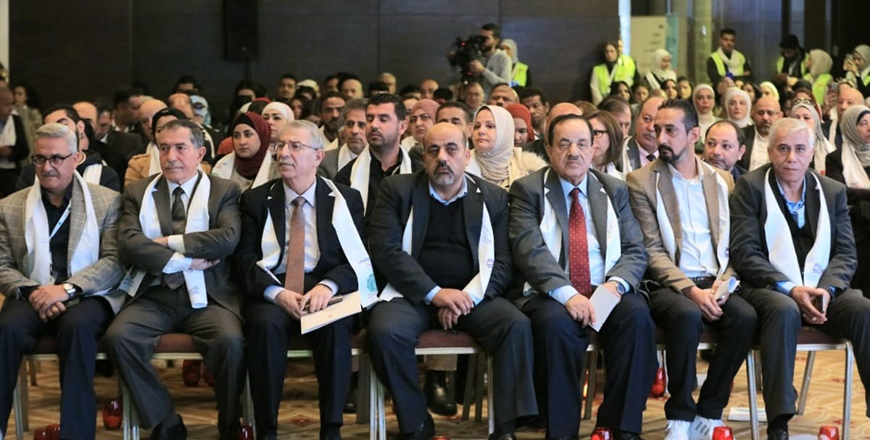You are here
Activists continue to raise awareness of HIV/AIDS
By Fares Al Abed - Jul 13,2017 - Last updated at Jul 13,2017
AMMAN — Anti-HIV and AIDS activists met on Thursday with stakeholders to discuss the continuation of a campaign to raise the public’s awareness on prevention of the disease.
The campaign coordination committee, along with the Forearms of Change Centre, comprises representatives from the Ministry of Planning and International Cooperation, Awqaf Ministry, Health Ministry, Social Development Ministry, The Anti-Narcotics Department, Family Protection Department, National AIDS Programme, International Relief and Development organisation, in addition to representatives of civil society organisations and experts in this field, the organisers said.
Forearms of Change Centre was established in Amman in 2012 as a non-governmental, non-profit organisation, to offer preventive and curative services and improve the quality of life for marginalised and vulnerable groups, the centre’s website says.
Its work is especially focused on providing services to those at risk of drug use, those living with AIDS, and survivors of sexual exploitation and domestic violence, according to the centre’s website.
The centre also ensures that those most susceptible to infection with AIDS are also involved in prevention efforts.
The human immunodeficiency virus (HIV) is a disease which, in its later stages, is known as acquired immune deficiency syndrome (AIDS).
When asked about the people who are most at risk of infection from AIDS, Abdullah Hanatleh, the chairman of Forearms of Change Centre, said: “The age group which is most likely to become exposed to the HIV virus is the youth.”
He added that, among young people, drug users are particularly vulnerable to infection, those involved in intravenous drug taking, as well as those who are sexually active, especially homosexual men, female sex workers and prisoners.
“Since 2012, the support given to the Ministry of Health to carry out preventive efforts regarding AIDS has stopped, so there has to be a civil society foundation to do provide these campaigns or services, in order to help detect the HIV virus,” Hanatleh said.
Hanatleh, a former participant in the Ministry of Health’s national AIDS programme, embracing the idea that civil society should play an active role in the fight against HIV and AIDS, helped to establish the centre.
Awareness raising interventions began with different social groups, such as young people and drug users, as well as Syrian refugees, he added.
“We started an educating peers programme, where young people would act as positive influences for other young men and women, in order to protect them from hazardous practices, such as drug abuse and unsafe sex,” Hanatleh noted.
Targeting people from 18 to 45 years, these “influencers” work in universities, restaurants, cafes and coffee shops, in the streets and “everywhere else”, he explained.
Mohammad Nasrallah, the centre’s field coordinator, stressed, however, that the decision to seek treatment ultimately rests with the individual.
“When we find out that someone’s tests positive for the HIV virus, we talk to them and advise them to come and receive treatment, but we have no power to force them to come.”
Related Articles
AMMAN — HIV-related stigma and discrimination constitute a major challenge faced by people living with AIDS, according to Forearms of Change
AMMAN — The Health Ministry and Forearms of Change Centre to Enable Community (FOCCEC) on Wednesday launched a campaign titled “We Are All P
VANCOUVER — Despite evidence that taking powerful anti-HIV drugs can help protect uninfected partners from contracting the virus that












